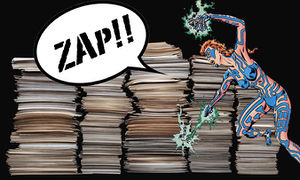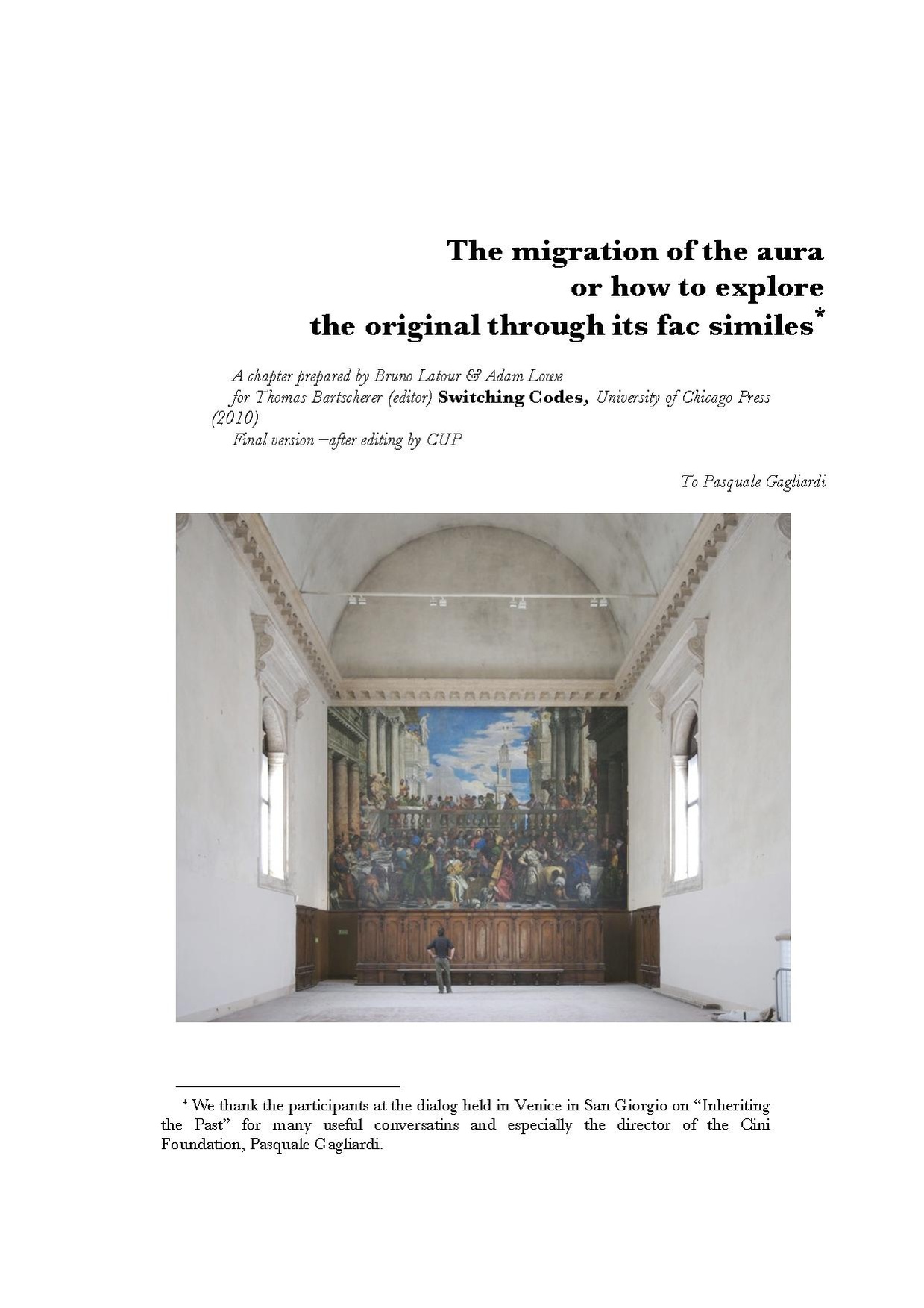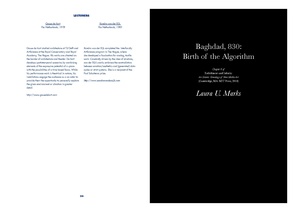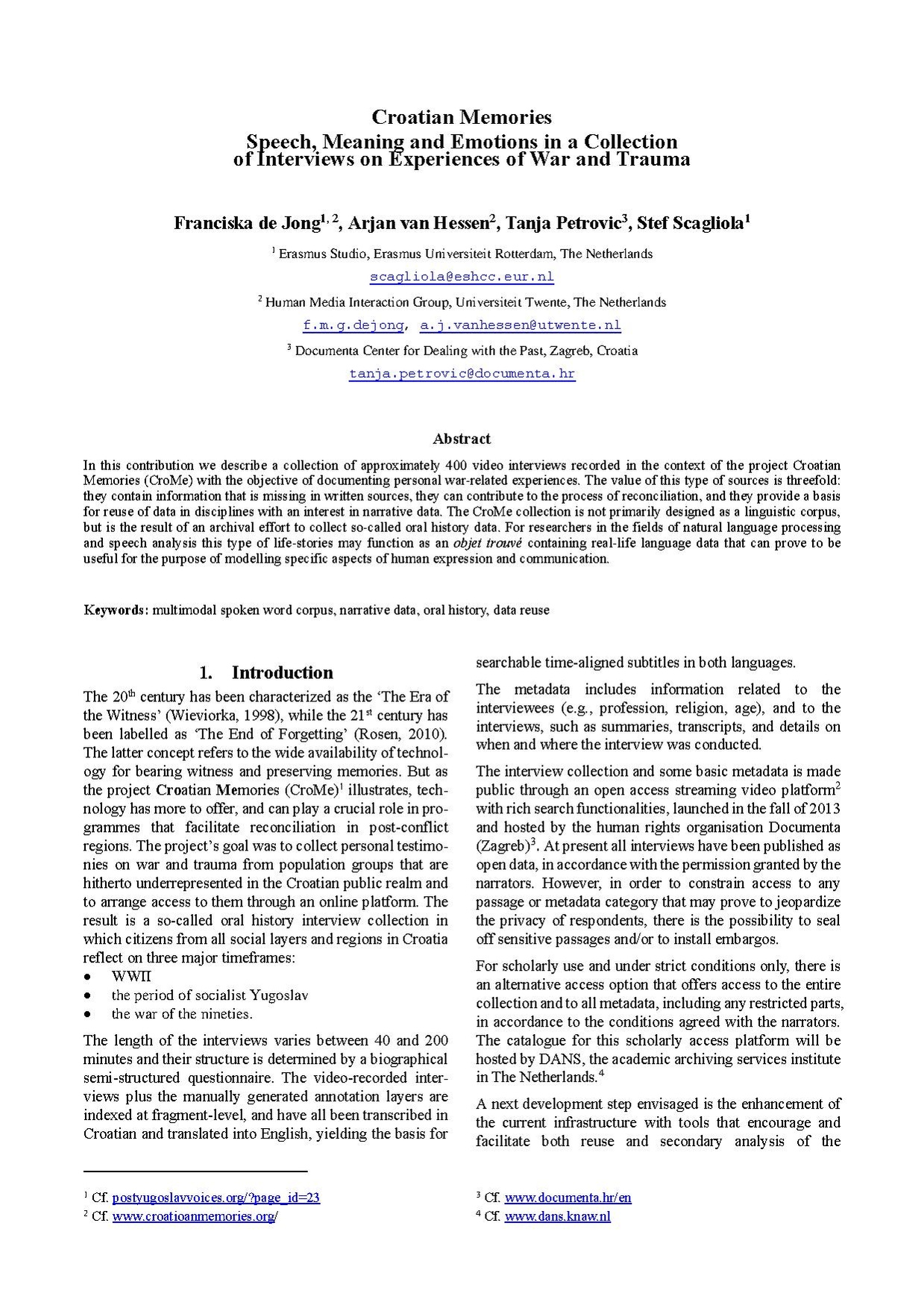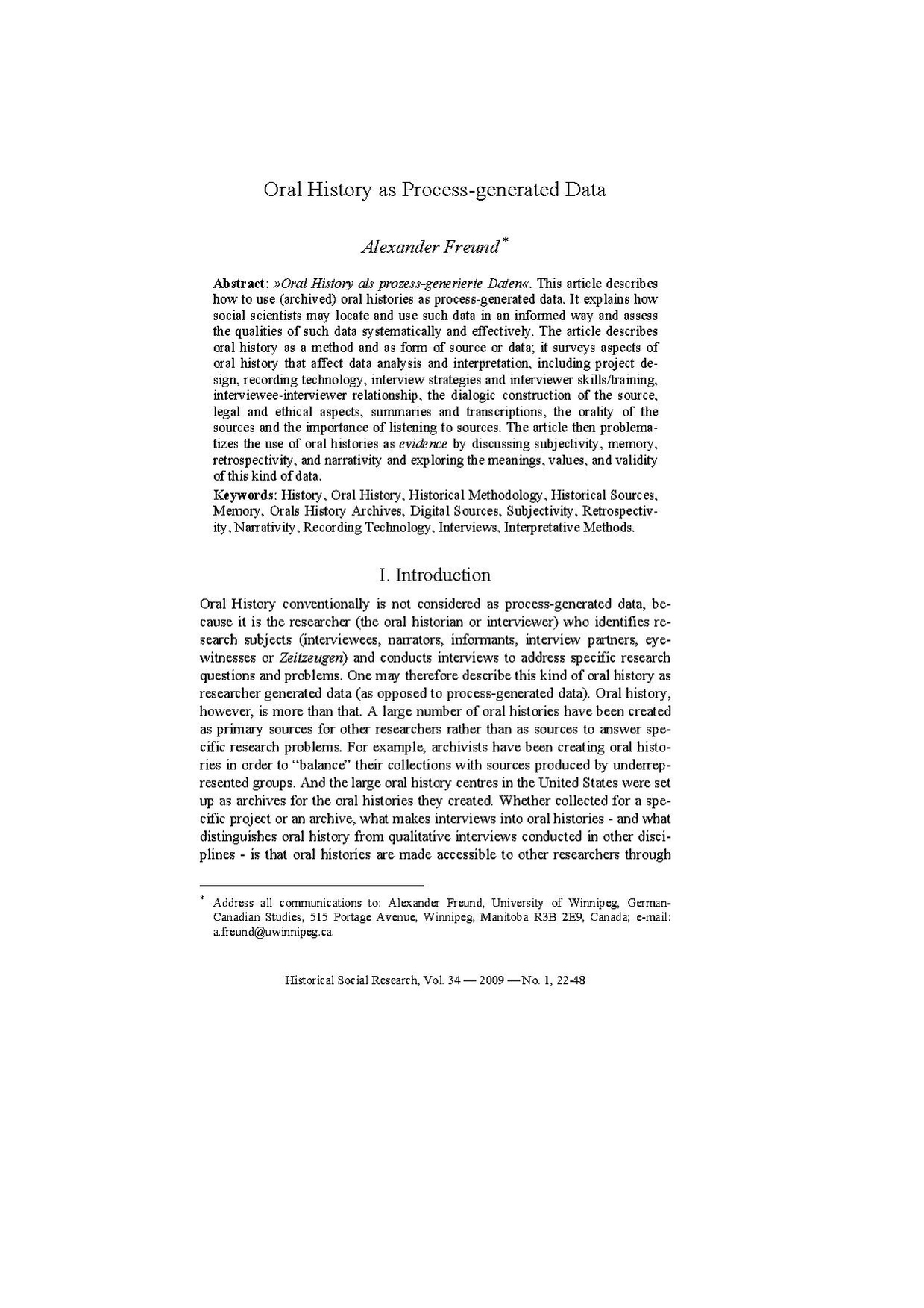Thematic Trimester 1: Short Circuiting the Archive: Difference between revisions
| (92 intermediate revisions by 8 users not shown) | |||
| Line 60: | Line 60: | ||
''readers/presenters:'' | ''readers/presenters: Thomas, Benjamin Antman, Lucas, Cristina'' | ||
''screening:'' | |||
Francoise Levie, [http://www.zalaa.com/cbirxskanzf0/1339923031_video.flv.htm The Man Who Wanted to Classify the World] (2002) | |||
Ben Lewis, [http://thoughtmaybe.com/google-and-the-world-brain/ Google and the World Brain] (2012) | |||
Johan Grimonprez, [http://www.youtube.com/watch?v=7xrZzqmC4Ps DIAL History] (1997) | |||
==Monday 29 September== | ==Monday 29 September== | ||
| Line 67: | Line 77: | ||
''reading:'' | ''reading:'' | ||
''readers/presenters:'' | ''readers/presenters:'' | ||
''link:'' http://thecreatorsproject.vice.com/blog/ghostly-light-paintings-emblazon-the-internet-archive-servers | |||
==Monday 6 October== | ==Monday 6 October== | ||
class 4 T – Tactical | class 4 T – Tactical absences and (in) visibility + guest Margaret Tali PhD | ||
''reading:'' | ''reading:'' | ||
Apprich, Clemens. "Remaking Media Practices – From Tactical Media to Post-Media." Metamute (2013). <br /> | |||
http://www.metamute.org/editorial/lab/remaking-media-practices-–-tactical-media-to-post-media<br /> | |||
''Speaking Absence and Museal Archives. Kiba Lumberg's Crazy Artist Diary. ''Margaret Tali, PhD'' <br /> | |||
Mbembe, Achille. "The Power of the Archive and It's Limits." Refiguring the Archive. Cape Town, South Africa: David Philip, 2002. 18-26. | |||
''readers/presenters:'' | ''readers/presenters:'' | ||
benjamin li, allison ann, arantxa gonlag | |||
==Monday 13 October== | ==Monday 13 October== | ||
class 5 T – Challenging (collaborating) with(in) Archives/Collections + visit Tropenmuseum in Amsterdam | class 5 T – Challenging (collaborating) with(in) Archives/Collections + visit Tropenmuseum in Amsterdam | ||
Exhibition: '''[http://tropenmuseum.nl/en/exhibition/Soulmade_JasperKrabbeXTropenmuseum Soulmade - Jasper Krabbé meets Tropenmuseum]''' | |||
Meet at 12 NOON (sharp) at the entrance- | |||
''reading:'' | |||
Mirjam Shatanawi, “Tropical Malaise,” in: Bidoun, 10, (spring) 2007. | |||
Mirjam Shatanawi, ''Contemporary Art in Ethnographic Museums'' guest author GAM – Global Art and the Museum, 2008. http://www.globalartmuseum.de/site/guest_author/21 | |||
''screen:'' [https://www.youtube.com/watch?v=hzFeuiZKHcg Les Statues Meurent/Aussi Statues Also Die] (Alain Resnais/Chris Marker, 1953) [activate CC for English subtitles] | |||
https://www.youtube.com/watch?v=hzFeuiZKHcg | |||
''recommended reading:'' | |||
online essay by UK artist Liz Bailey, ''Why have some artists turned to anthropology in their practice and how has this turn been interpreted and critiqued?''' | |||
http://www.lizbailey.org.uk/painting_pages/essay%20pages/artist%20as%20anthropologist.htm | |||
''readers/presenters:'' | ''readers/presenters:'' | ||
==Monday 27 October== | ==Monday 27 October== | ||
class 6 A – | class 6 A – Authenticity in Versioning + screenings | ||
''reading:'' | ''reading:'' | ||
''readers/presenters:'' | N. Katherine Hayles, Writing Machines, chapter 2: Material Metaphors, Technotexts, and Media-Specific Analysis (pp. 19-33) -[http://monoskop.org/images/b/bf/Hayles_N_Katherine_Writing_Machines.pdf Writing Machines] | ||
Bruno Latour & Adam Lowe (2010) The migration of the aura or how to explore the original through its fac similes. In Switching Codes, edited by Thomas Bartscherer. Chicago: University of Chicago Press. | |||
[[File:BrunoLatour TheMigrationOfTheAura OrHowToExploreTheOriginalThroughItsFacsimiles.pdf|none]] | |||
Hito Steyerl (2009) [http://www.e-flux.com/journal/in-defense-of-the-poor-image/ In Defense of the Poor Image]. | |||
''readers/presenters:'' solange frankort, cihad caner, [emily]yuzhen tang, Manetta | |||
==Monday 3 November== | ==Monday 3 November== | ||
class 7 A – Networks and circulation | class 7 A – Networks and circulation : guest visit by Scott Kildall (currently artist in residence at Impakt, Utrecht) | ||
''reading:'' | ''reading:'' | ||
Adrian Mackenzie (2005) [http://www.lancaster.ac.uk/staff/mackenza/papers/code_performativity.pdf The Performativity of Code: Software and Cultures of Circulation]. Theory, Culture & Society. Vol. 22, No. 1, pp. 71-92 | |||
Anna Munster and Geert Lovink (2013) [http://seven.fibreculturejournal.org/fcj-040-theses-on-distributed-aesthetics-or-what-a-network-is-not/ Theses on Distributed Aesthetics. Or, What a Network is Not] | |||
Yuk Hui and Harry Halpin. 2013. [http://digital-studies.org/wp/wp-content/uploads/2013/01/HuiYuk_and_HarryHalpin_FINAL_CollectiveIndividuation.pdf Collective Individuation: The Future of the Social Web]. In ''Unlike Us Reader. Social Media Monopolies and Their Alternatives. INC Reader 8'', edited by Geert Lovink and Miriam Rasch. Amsterdam: Institute of Network Cultures, pp. 103-16. | |||
''readers/presenters:'' | ''readers/presenters:'' Julie Boschat Thorez, Ruben, Joana | ||
[[File:On Geometry and Speculation LMarks.pdf|thumbnail|On Geometry and Speculation ]] | |||
==Monday 17 November== | ==Monday 17 November== | ||
class | class 8 T - | ||
The Unreliable Narrator: Malleable, Modular and Migratory + screenings | |||
'''reading:''' | |||
'''readers/presenters: EVERYONE TO READ/CONTRIBUTE TO MORNING SESSION''' | |||
Lev Manovich (1999) The Database as Symbolic Form, Millennium Film Journal (1999) | |||
http://www.mfj-online.org/journalPages/MFJ34/Manovich_Database_FrameSet.html | |||
Laura U. Marks (2010) Baghdad, 830: Birth of the Algorithm. Enfoldment and Infinity: An Islamic Genealogy of New Media Art | |||
Dan Shen (2011) Unreliability | |||
http://wikis.sub.uni-hamburg.de/lhn/index.php/Unreliability | |||
'''Afternoon session:''' | |||
'' | screen: ''Nostalgia'' (Hollis Frampton, US, 1971) | ||
https://www.youtube.com/watch?v=voMDL1TgTh4 (Part 1 of 4) | |||
'' | Work on individual/group ''Archival Charette(s)'' | ||
==Monday 24 November== | ==Monday 24 November== | ||
class 10 T - | class 9 A+T – In the dark + visit to Zeeuws Museum in Middelburg | ||
''reading:'' | |||
Jean Baudrillard, [https://www.scribd.com/doc/99380688/Baudrillard-Jean-Why-Hasnt-Everything-Already-Disappeared ''Why Hasn't Everythinng Already Disappeared?'', 2009[2007<nowiki>]</nowiki>.] | |||
''readers/presenters:'' everyone | |||
this class will focus on the final assignment of the course | |||
==Monday 1 December== | |||
class 10 T -''' | |||
--Meet at 11am unless notified otherwise--''' | |||
Oral History Perspectives- a visit by Dr. Stef Scagliola (Erasmus Studios) | |||
reading: | |||
-Franciska de Jong, Arjan van Hessen, Tanja Petrovic, Stef Scagliola; | |||
''Croatian Memories Speech, Meaning and Emotions in a Collection of Interviews on Experiences of War and Trauma'' | |||
[[File:Lrec2014 CroatianMemories final.pdf|Croatian Memories]] | |||
-Alexander Freund, ''Oral History as Process-generated Data''. Historical Social Research, Vol. 34 — 2009 — No. 1, 22-48. | |||
[[File:2009 Freund OH Process Generated Data HSR 34.1.pdf|Oral History as Process Generated Data]] | |||
optional reading: | |||
Scagliola, S. & F.M.G. de Jong, ''Clio’s Talkative Daughter Goes Digital''(forthcoming)in: R. Bod et al (eds.), The Making of the Humanities, Volume III: The Modern Humanities. Amsterdam University Press. | |||
==Friday 5 December== | |||
class 11 A - Remix, memory and authorship + screenings | |||
''reading:'' | ''reading:'' | ||
Olga Goriunova, Light Heavy Weight Curating. In ''Speculative Scenarios'', chapter 3 [[this book was handed out earlier]] | |||
Christopher Kelty, [http://recursivepublic.net/wp-content/uploads/2010/11/Kelty-Hdbk-Participation-0.3.pdf From Participation to Power. In ''Participatory Cultures Handbook'', edited by Aaron Delwiche and Jennifer Henderson, 2013.] | |||
''optional reading'' | |||
Friedrich Nietzsche, ''On the Use and Abuse of History for Life'', [http://records.viu.ca/~johnstoi/nietzsche/history.htm parts 1-3]. | |||
Evgeny Morozov, ''To Save Everything Click Here'' : chapter 3, So Open It Hurts (pp. 63-99) | |||
Wendy Hui Kyong Chun, [http://www.ucl.ac.uk/art-history/events/past-imperfect/chun-reading The Enduring Ephemeral, or the Future Is a Memory] | |||
''readers/presenters:'' | ''readers/presenters:'' | ||
== | ==Thursday 11 December== | ||
class | class 12 A+T - Presentations of assignment and Evaluation & Discussion | ||
[[Category:Thematic project]] | [[Category:Thematic project]] | ||
Latest revision as of 14:42, 28 November 2014
Thematic Project Description
thanks to: Tina Bastajian
Short Circuiting the Archive
In December 2013, the publisher New Documents presented the new volume Walter Benjamin: Recent Writings 1986-2013. The collection contains the transcript of one of Benjamin’s first lectures, Mondrian ’63-‘96. Many years after his death, Walter Benjamin (1892-1940) reappeared in public in 1986 before an audience at the Cankarjev Dom in Ljubljana, Slovenia. Questioning the epistemological values of copies, in his lecture he presented several Piet Mondrians dating from 1963 to 1996. The event was in conjunction with the exhibition The Last Futurist Exhibition, by Kasimir Malevich, first presented in a private apartment in 1985 in Belgrade and next at the Gallery Škuc, Ljubljana in 1986, as well as The International Exhibition of Modern Art (Armory Show) 1993, which was first shown in Belgrade, in the Salon of the Museum of Contemporary Art (1986), and afterwards again in Ljubljana (1986). The latter exhibition represented artworks from the Armory Show that was held in New York in 1913, along with a representative selection of copies of avant-garde and various modernist artistic movements. The artworks were signed with the names of the artists that the paintings supposedly belonged to, from Matisse to Carl Andre, but dated differently 1905, 1913, 1932, 1969, 1988, 1990 and 2019. The impossibility to view these artists in the Socialist Federal Republic of Yugoslavia, accompanied by exhibition materials stating that the exhibition was taking place in New York in 1993, and that the show was organised by the (dead) Russian avant-garde painter Kazimir Malevich were suspect to say the least.
These events were not attempts to copy original paintings, or create forgeries. The artists behind the project, who remained anonymous, tried to (re)create the foundations of a system of art that is known as contemporary art today. The copy is here not anymore a mere replica; it is more complex and multi-layered, triggering additional meanings. As Benjamin mentioned near the end of his lecture:
"Even those so-called answers, which we have arrived at in this lecture, are only conditional answers. They are based on assumptions and not on facts. The only true facts are these paintings, which stand in front of us. Such simple paintings and such complicated questions. We still don’t know who is the author of these paintings, when they originated and what is their meaning. They rely neither on the co-ordinates of time, nor on co-ordinates of identity, nor on co-ordinates of meaning. They simply hover, and the only comprehensible sense of their existence, which we can accept with certainty are these questions themselves".
The idea of the copy, or appropriation, is well exemplified in art’s history, for example through the works by Sherrie Levin, Eva and Franco Mattes or David Diao. Adding to these examples, but now also reifying the erasure of the artist’s body, these projects question the current, canonized foundations of art: the identity of the artists and their work, the meaning and significance of the work, and its interpretation. As such, they use the past to critically address today’s narratives. Moreover, combining the past and the future in the present, time is presented here as circular. Without the difference between past and future, everything is present. This ‘constant present’, a result of constant copying, recalls Paul Virilio’s analysis of today’s computerised world: “the decisive end of the present period of art, when an old system (which could be a new one under altered circumstances) is returning to art. (...) The three tenses of decisive action: past, present and future, have been surreptitiously replaced by two tenses: real time and delayed time, the future having meanwhile disappeared via computer programming and, on the other hand, in the corruption of this so-called ‘real’ time which simultaneously contains both a part of the present and a part of the immediate future”.
In the course we will focus on such different strategies or methods that present history as a story that also mirrors certain affinities with the notion of the archive; a subjectively constructed narrative that orders diverse phenomena into a coherent vision of the past. Eliding the boundaries between historical fact and fiction, the copy is just one way to confront forms of historicity and anti-historicity. Through modes of iteration — the copy, the leak and other permutations can short-circuit, defy, disrupt and subsume archival activities to transfer the undocumentability of war and trauma, and the limits of historical representation. Repetition is another, returning again and again to the same subjects, ideas will start to bleed together forming (new) narratives. The question is how to deal with such tactics? Do they lead to an abandonment of stories, or art for that matter? Can they stimulate uncharted voices that might provoke and unravel existing cultural and political structures? Or, can they be exposed by not looking at the narrative itself but rather through the process of how narratives come into being? Distributed or existing within dispersed networks, what kinds of organisations are adequate for presentation, dissemination or preservation?
The course will critically address these and related questions while looking at a diverse set of examples both historical and contemporary, theoretical and practical. The thematic project is divided in different clusters that will address and explore archival theories and practices, interweaving tangible and oblique approaches. Moving from databases, to unconventional strategies and into the condition of the copy and the leak. Next to weekly lectures and discussions there will be workshops, guest appearances, screenings and visits to exhibitions. The exact program will be updated along the course.
Tutors
Tina Bastajian is a film/new media artist, researcher and archival dramaturgist born in Los Angeles and raised as a filmmaker in San Francisco. Currently she is a researcher at the University of Amsterdam's School for Cultural Analysis (ASCA). In tandem she is working in praxis and theory to chart and interrogate subjective mapping tendencies in locative media practices that is further explored in her interactive documentary work, Coffee Deposits:Topologies of Chance (2010) that extends to locative ‘post-scripts’ via QR code, geo-caching and augmented reality tactics. Themes of the fragment, translation, and the trace are also intrinsic to her work within experimental, exilic and diasporan film. Other aspects of her research have focused on strategies of documentation, preservation and re-presentation of historical performative film works (Expanded Cinema), informing her project that re-traced the Amsterdam underground film venue and movement Electric Cinema (circa 1969-1975) through a series of interviews, texts, curated programs (International Film Festival Rotterdam, Electric Cinema ReDux) and its subsequent documentation of performances. Her work has been shown at festivals, galleries and museums including: IDFA, San Francisco International Film Festival; YYZ Gallery, Toronto; CinemaEast NYC; Smart Project Space gallery, Amsterdam; Pompidou Centre, Paris; Beirut International Film Festival; The Centre for Oral History and Digital Storytelling, Montreal; and De Filmhuis in Den Haag.
Annet Dekker is an independent researcher, curator and writer. She is interested in the influence of technology, science and popular culture on art and vice versa. Currently she is core tutor at Piet Zwart Institute, Rotterdam and researcher digital preservation at Tate in London. In 2009 she initiated aaaan.net with Annette Wolfsberger; they coordinate artists-in-residences and set up strategic and sustainable collaborations with (inter)national arts organisations. Previously she worked as web curator for SKOR (2010–12), was programme manager at Virtueel Platform (2008–10), head of exhibitions, education and artists-in-residence at the Netherlands Media Art Institute (1999–08), and editor of several publications on digital art and issues of preservation. In 2014 she completed a Ph.D. research at the Centre for Cultural Studies, Goldsmiths University in London, titled Enabling the Future, or How to Survive FOREVER. A study of networks, processes and ambiguity in net art and the need for an expanded practice of conservation.
Schedule
Unless otherwise specified, Seminars will take place on Mondays.
Preliminary schedule: changes are likely to take place, so keep an idea out to this page and the calender !
Programme planning
Thursday 18 September
class 1 A – Introduction + guest Özge Çelikaslan
11:15 - 17:30
reading:
readers/presenters: all - a 500 word essay needs to be ready and on your dedicated wiki page by Wednesday 17 October.
Monday 22 September
class 2 A – Archive 1 + screenings
reading:
- Michel Foucault, The Archaeology of Knowledge. And the Discourse on Language. New York: Vintage Books (1972 - edition 2010):
Introduction (pp.3-17) + The historical a priori and the archive (pp.126-131)
- Jacques Derrida (1995) Archive Fever. A Freudian Impression. pp. 9-21. [1]
readers/presenters: Thomas, Benjamin Antman, Lucas, Cristina
screening:
Francoise Levie, The Man Who Wanted to Classify the World (2002)
Ben Lewis, Google and the World Brain (2012)
Johan Grimonprez, DIAL History (1997)
Monday 29 September
class 3 T – Visit to Eye in Amsterdam for masterclass by Anthony McCall
reading:
readers/presenters:
Monday 6 October
class 4 T – Tactical absences and (in) visibility + guest Margaret Tali PhD
reading:
Apprich, Clemens. "Remaking Media Practices – From Tactical Media to Post-Media." Metamute (2013).
http://www.metamute.org/editorial/lab/remaking-media-practices-–-tactical-media-to-post-media
Speaking Absence and Museal Archives. Kiba Lumberg's Crazy Artist Diary. Margaret Tali, PhD
Mbembe, Achille. "The Power of the Archive and It's Limits." Refiguring the Archive. Cape Town, South Africa: David Philip, 2002. 18-26.
readers/presenters: benjamin li, allison ann, arantxa gonlag
Monday 13 October
class 5 T – Challenging (collaborating) with(in) Archives/Collections + visit Tropenmuseum in Amsterdam Exhibition: Soulmade - Jasper Krabbé meets Tropenmuseum Meet at 12 NOON (sharp) at the entrance-
reading: Mirjam Shatanawi, “Tropical Malaise,” in: Bidoun, 10, (spring) 2007.
Mirjam Shatanawi, Contemporary Art in Ethnographic Museums guest author GAM – Global Art and the Museum, 2008. http://www.globalartmuseum.de/site/guest_author/21
screen: Les Statues Meurent/Aussi Statues Also Die (Alain Resnais/Chris Marker, 1953) [activate CC for English subtitles] https://www.youtube.com/watch?v=hzFeuiZKHcg
recommended reading: online essay by UK artist Liz Bailey, Why have some artists turned to anthropology in their practice and how has this turn been interpreted and critiqued?' http://www.lizbailey.org.uk/painting_pages/essay%20pages/artist%20as%20anthropologist.htm
readers/presenters:
Monday 27 October
class 6 A – Authenticity in Versioning + screenings
reading:
N. Katherine Hayles, Writing Machines, chapter 2: Material Metaphors, Technotexts, and Media-Specific Analysis (pp. 19-33) -Writing Machines
Bruno Latour & Adam Lowe (2010) The migration of the aura or how to explore the original through its fac similes. In Switching Codes, edited by Thomas Bartscherer. Chicago: University of Chicago Press.
Hito Steyerl (2009) In Defense of the Poor Image.
readers/presenters: solange frankort, cihad caner, [emily]yuzhen tang, Manetta
Monday 3 November
class 7 A – Networks and circulation : guest visit by Scott Kildall (currently artist in residence at Impakt, Utrecht)
reading:
Adrian Mackenzie (2005) The Performativity of Code: Software and Cultures of Circulation. Theory, Culture & Society. Vol. 22, No. 1, pp. 71-92
Anna Munster and Geert Lovink (2013) Theses on Distributed Aesthetics. Or, What a Network is Not
Yuk Hui and Harry Halpin. 2013. Collective Individuation: The Future of the Social Web. In Unlike Us Reader. Social Media Monopolies and Their Alternatives. INC Reader 8, edited by Geert Lovink and Miriam Rasch. Amsterdam: Institute of Network Cultures, pp. 103-16.
readers/presenters: Julie Boschat Thorez, Ruben, Joana
Monday 17 November
class 8 T - The Unreliable Narrator: Malleable, Modular and Migratory + screenings
reading:
readers/presenters: EVERYONE TO READ/CONTRIBUTE TO MORNING SESSION
Lev Manovich (1999) The Database as Symbolic Form, Millennium Film Journal (1999) http://www.mfj-online.org/journalPages/MFJ34/Manovich_Database_FrameSet.html
Laura U. Marks (2010) Baghdad, 830: Birth of the Algorithm. Enfoldment and Infinity: An Islamic Genealogy of New Media Art
Dan Shen (2011) Unreliability http://wikis.sub.uni-hamburg.de/lhn/index.php/Unreliability
Afternoon session:
screen: Nostalgia (Hollis Frampton, US, 1971) https://www.youtube.com/watch?v=voMDL1TgTh4 (Part 1 of 4)
Work on individual/group Archival Charette(s)
Monday 24 November
class 9 A+T – In the dark + visit to Zeeuws Museum in Middelburg
reading:
Jean Baudrillard, Why Hasn't Everythinng Already Disappeared?, 2009[2007].
readers/presenters: everyone
this class will focus on the final assignment of the course
Monday 1 December
class 10 T - --Meet at 11am unless notified otherwise-- Oral History Perspectives- a visit by Dr. Stef Scagliola (Erasmus Studios)
reading: -Franciska de Jong, Arjan van Hessen, Tanja Petrovic, Stef Scagliola; Croatian Memories Speech, Meaning and Emotions in a Collection of Interviews on Experiences of War and Trauma
-Alexander Freund, Oral History as Process-generated Data. Historical Social Research, Vol. 34 — 2009 — No. 1, 22-48.
optional reading: Scagliola, S. & F.M.G. de Jong, Clio’s Talkative Daughter Goes Digital(forthcoming)in: R. Bod et al (eds.), The Making of the Humanities, Volume III: The Modern Humanities. Amsterdam University Press.
Friday 5 December
class 11 A - Remix, memory and authorship + screenings
reading:
Olga Goriunova, Light Heavy Weight Curating. In Speculative Scenarios, chapter 3 this book was handed out earlier
Christopher Kelty, From Participation to Power. In Participatory Cultures Handbook, edited by Aaron Delwiche and Jennifer Henderson, 2013.
optional reading
Friedrich Nietzsche, On the Use and Abuse of History for Life, parts 1-3.
Evgeny Morozov, To Save Everything Click Here : chapter 3, So Open It Hurts (pp. 63-99)
Wendy Hui Kyong Chun, The Enduring Ephemeral, or the Future Is a Memory
readers/presenters:
Thursday 11 December
class 12 A+T - Presentations of assignment and Evaluation & Discussion

